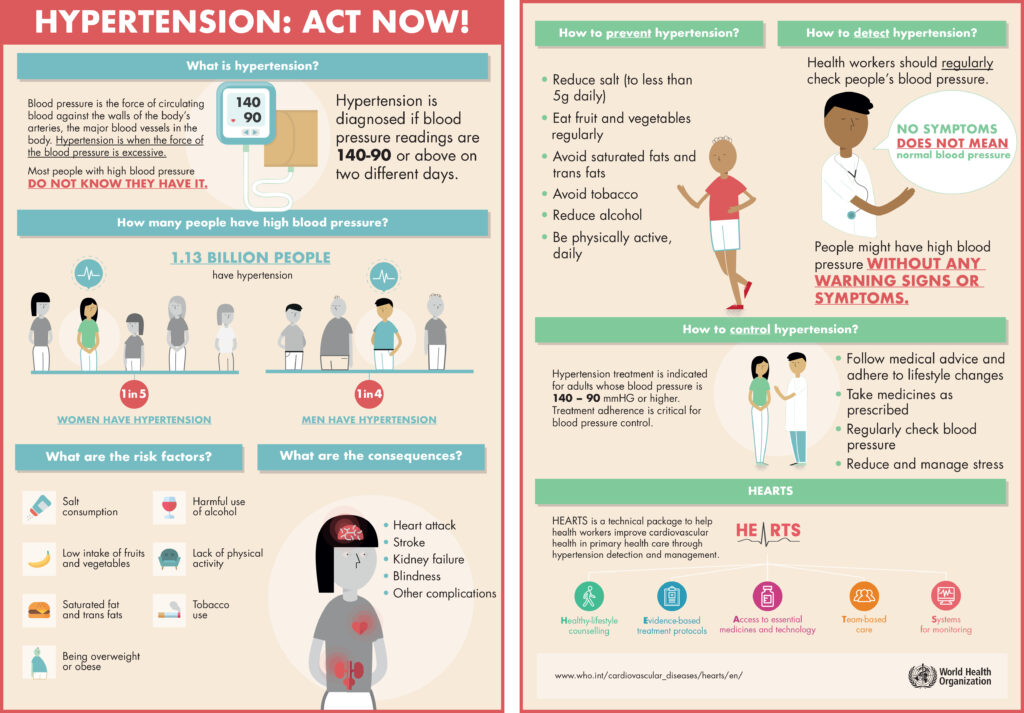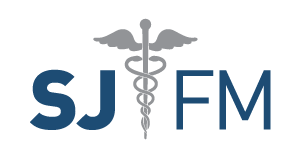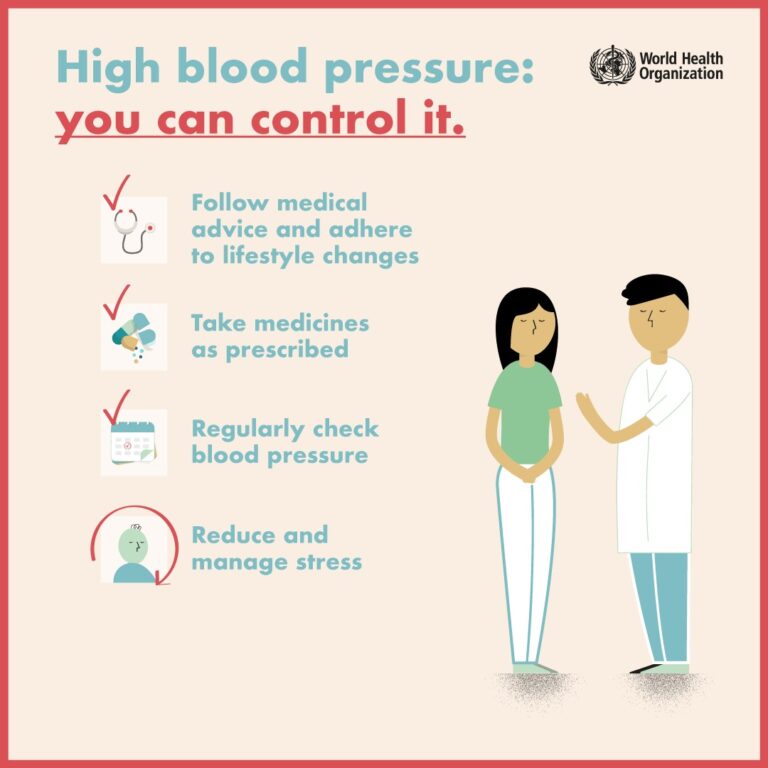
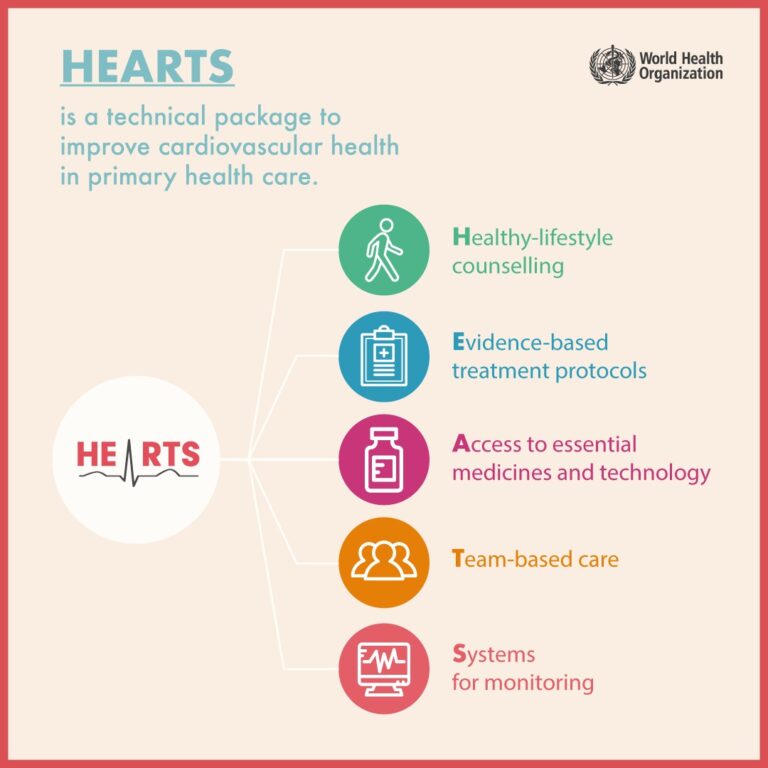
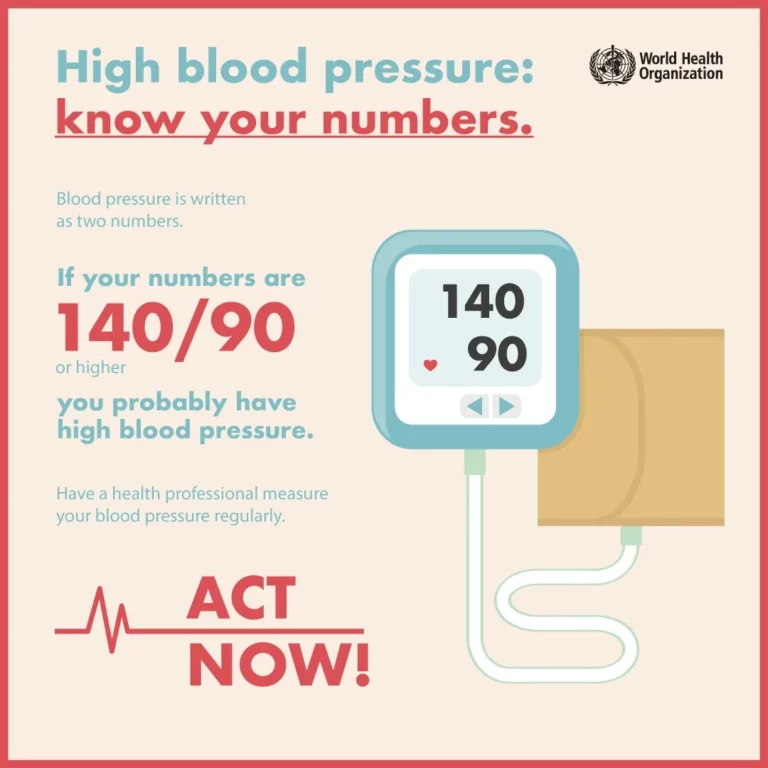
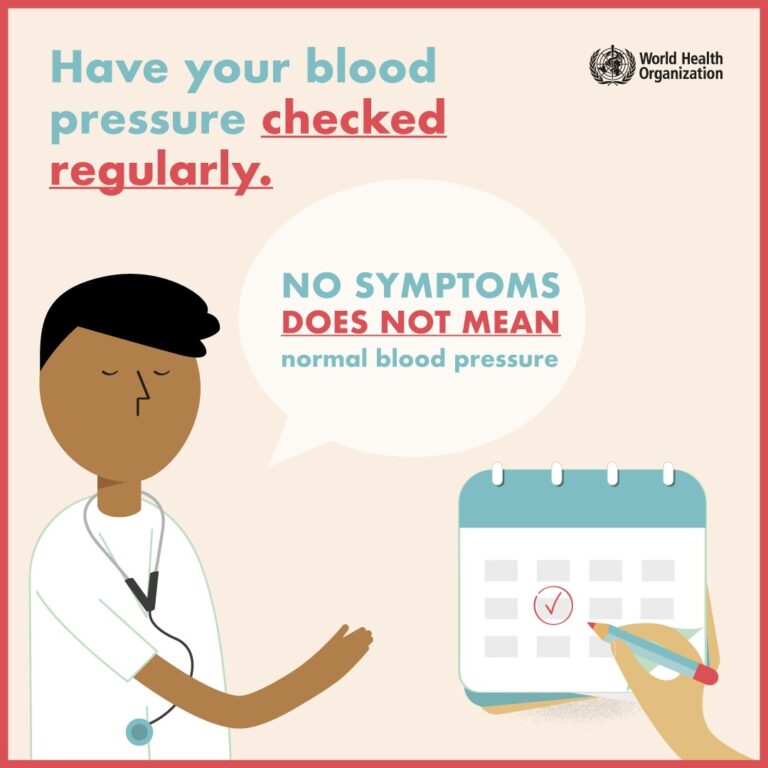
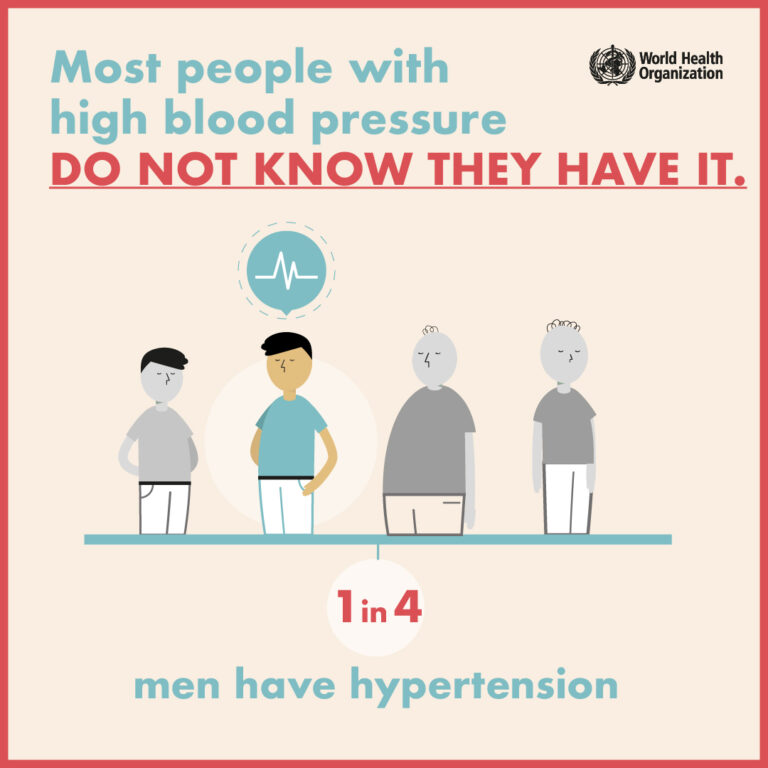
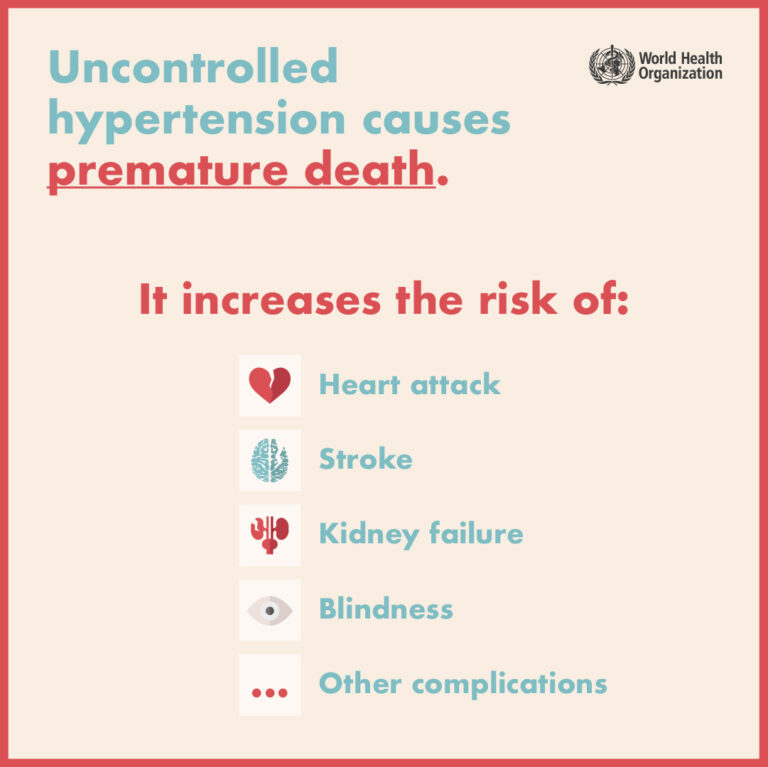
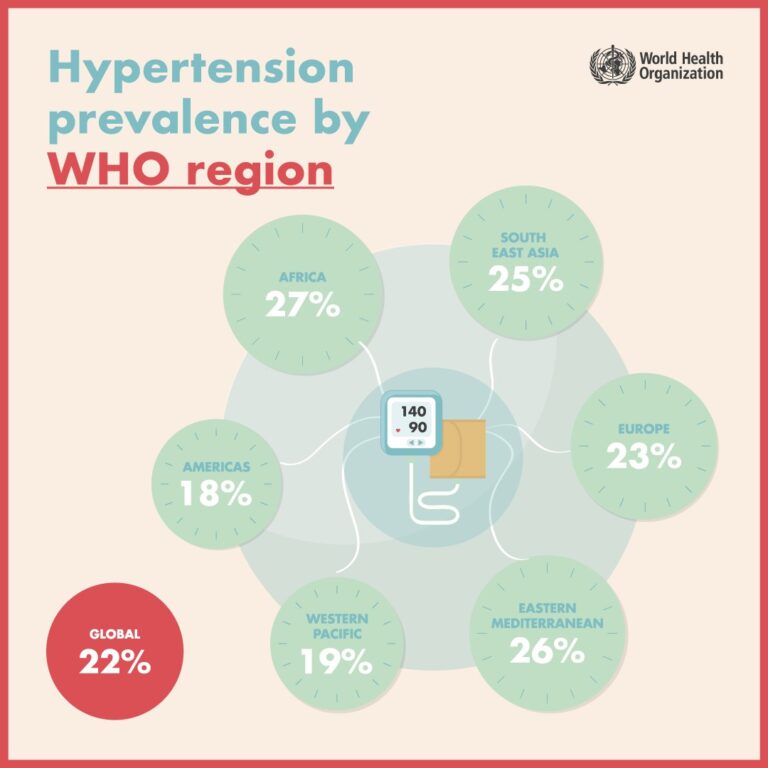
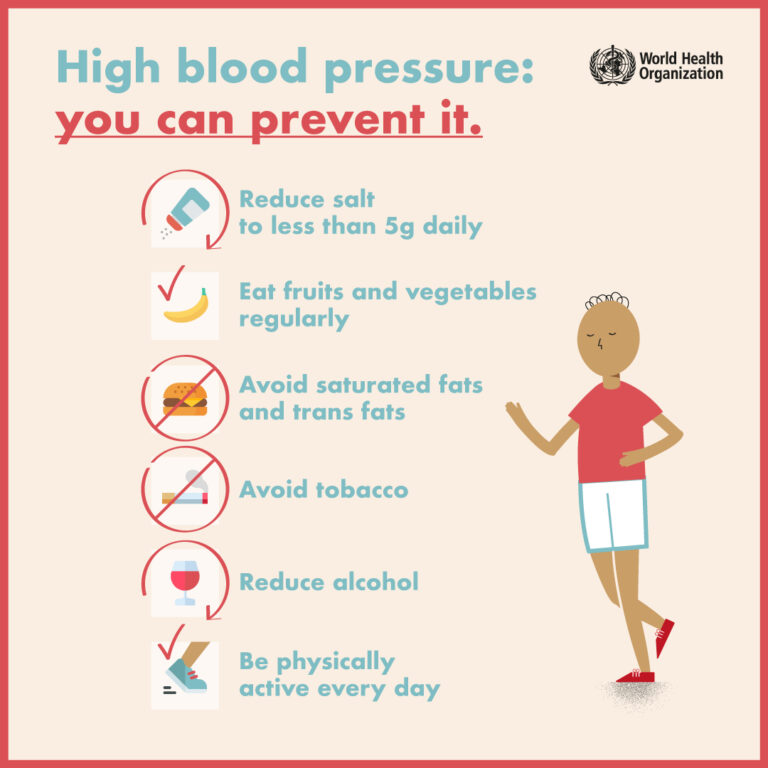
What is high blood pressure?
High blood pressure is a condition that puts you at risk for heart attack, stroke, and kidney disease. It does not usually cause symptoms. But it can be serious.
When your doctor or nurse tells you your blood pressure, they will say 2 numbers. For instance, your doctor or nurse might say that your blood pressure is “130 over 80.” The top number is the pressure inside your arteries when your heart is contracting. The bottom number is the pressure inside your arteries when your heart is relaxed.
“Elevated blood pressure” is a term doctors or nurses use as a warning. People with elevated blood pressure do not yet have high blood pressure. But their blood pressure is not as low as it should be for good health.
Many experts define high, elevated, and normal blood pressure as follows:
- High – Top number of 130 or above and/or bottom number of 80 or above
- Elevated – Top number between 120 and 129 and bottom number of 79 or below
- Normal – Top number of 119 or below and bottom number of 79 or below
How can I lower my blood pressure?
If your doctor or nurse has prescribed blood pressure medicine, the most important thing you can do is to take it. If it causes side effects, do not just stop taking it. Instead, talk to your doctor or nurse about the problems it causes. They might be able to lower your dose or switch you to another medicine. If cost is a problem, mention that too. They might be able to put you on a less expensive medicine. Taking your blood pressure medicine can keep you from having a heart attack or stroke, and it can save your life!
Can I do anything on my own?
You have a lot of control over your blood pressure. To lower it:
- Lose weight (if you are overweight)
- Choose a diet low in fat and rich in fruits, vegetables, and low-fat dairy products
- Reduce the amount of salt you eat
- Do something active for at least 30 minutes a day on most days of the week
- Cut down on alcohol (if you drink more than 2 alcoholic drinks per day)
It’s also a good idea to get a home blood pressure meter. People who check their own blood pressure at home do better at keeping it low and can sometimes even reduce the amount of medicine they take.
Why do I need medicines to treat high blood pressure?
Having high blood pressure puts you at risk for heart attack, stroke, kidney damage, and other serious problems. The medicines your doctor or nurse prescribes to treat high blood pressure can help reduce the risk of these problems and even help you live longer.
It’s very important that you take your blood pressure medicines every day as directed. High blood pressure doesn’t usually cause symptoms, so people sometimes don’t take it seriously. Plus, blood pressure medicines can cause side effects and be expensive, so it’s easy to understand why people don’t like to take them. But if you are tempted to skip your medicines, remember, they can save your life!
If your medicines cause unpleasant side effects, or if you can’t afford your medicines, talk to us at South Jersey Family Medicine. There are often ways to deal with these problems. The first step is to let your doctor or nurse know.
Which medicines might I need?
There are lots of different medicines to treat high blood pressure. But some of the medicines have other health benefits besides lowering blood pressure.
Your doctor or nurse will decide which medicine is best for you depending on:
- How high your blood pressure is
- Your other health problems, if you have any
- How well you do on the medicines you try
Your doctor or nurse might need to change your medicine or its dose a couple of times to find the medicine and dose that work best and cause the fewest side effects. Plus, you might need to take more than 1 medicine to get your blood pressure under control. Whatever your doctor or nurse prescribes, it’s important to take your medicines exactly as prescribed. But always let your doctor or nurse know if you have any problems with the medicines. That way they can make changes so that you are as comfortable as possible and also get the most benefit. Never stop or make changes to the way you take your medicines without talking to your doctor or nurse first.
Below is a list of the most common types of medicine given to people with high blood pressure:
- Medicines called “diuretics”
- Medicines called “angiotensin-converting enzyme inhibitors” (“ACE inhibitors”) or “angiotensin receptor blockers” (“ARBs”)
- Medicines called “calcium channel blockers”
- Medicines called “beta blockers”
Diuretics
Diuretics are sometimes called “water pills,” because they make you urinate more than usual. Some examples of diuretics include chlorthalidone, indapamide, hydrochlorothiazide (also known as HCTZ), and furosemide (brand name: Lasix).
ACE inhibitors and ARBs
ACE inhibitors and ARBs are often grouped together, because they work in similar ways. These medicines can help prevent kidney disease in some people. Doctors often prescribe them for people with diabetes, because people with diabetes have a higher-than-average risk of kidney disease. Also, people with heart failure who take ACE inhibitors and ARBs live longer than people with heart failure who don’t.
Some examples of ACE inhibitors include enalapril, captopril, and lisinopril. Some examples of ARBs include candesartan (brand name: Atacand) and valsartan (brand name: Diovan).
Calcium channel blockers
Some examples of calcium channel blockers include amlodipine (brand name: Norvasc), felodipine (brand name: Plendil), and diltiazem (brand name: Cardizem). These medicines also help prevent chest pain caused by heart disease.
Beta blockers
Besides lowering blood pressure, beta blockers help reduce the amount of work the heart has to do. Studies show that people who take a beta blocker after a heart attack are less likely to have another heart attack or die than people who don’t take a beta blocker. Studies also show that people with heart failure who take beta blockers live longer than people with heart failure who don’t.
When people first start taking beta-blockers, they sometimes feel tired. That is just while the body gets used to the medicine. But once the body gets used to beta blockers, the medicines can really help. If your doctor prescribes a beta blocker, give it a little time to start working.
Some examples of beta blockers include atenolol (brand name: Tenormin), metoprolol (brand names: Lopressor, Toprol-XL), and propranolol (brand name: Inderal LA).
